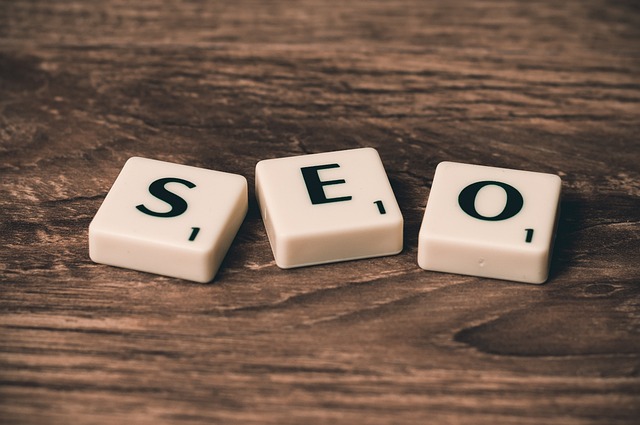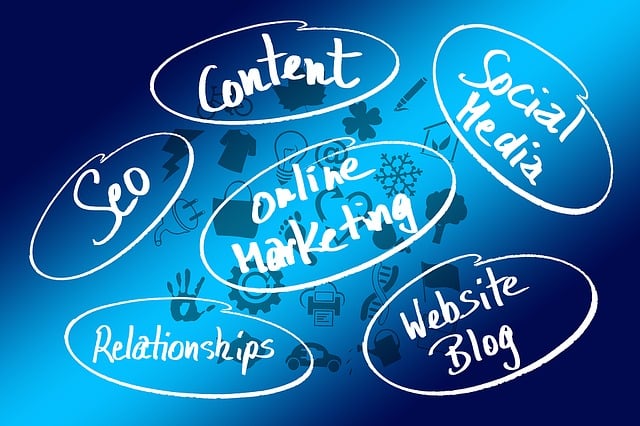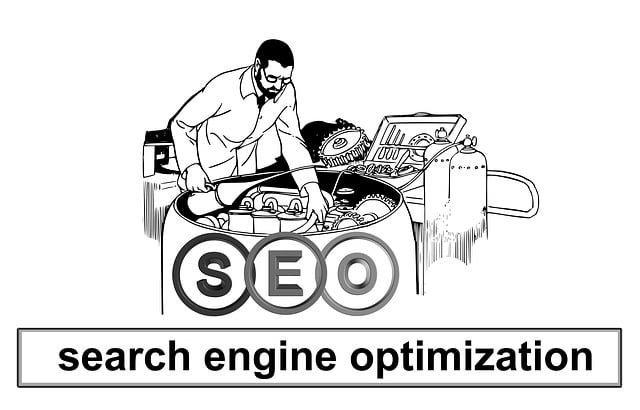On-Page SEO is a critical component of SEO Services, focusing on optimizing web pages through strategic keyword integration, meta tags, headers, and content structure for higher search engine rankings. Effective tactics include optimizing images, fast loading times, structured data markup, and internal linking. User experience is paramount; creating intuitive websites reduces bounce rates and encourages engagement, sending positive signals to search engines. Meta tags and descriptions are essential for visibility on SERPs, while Off-Page SEO involves building high-quality backlinks through social media, guest blogging, and influencer partnerships. Continuous analysis using tools like Google Analytics enables data-driven optimization, ultimately driving organic traffic and improving conversions. Integrating On-Page and Off-Page SEO Services strategies strengthens website authority and visibility in the competitive digital landscape.
In today’s digital landscape, a robust SEO strategy is pivotal for online success. This article delves into the dual pillars of search engine optimization (SEO services): on-page and off-page tactics. We explore how optimizing website content, utilizing keywords effectively, enhancing user experience, and building quality backlinks can elevate your search rankings. By integrating these on-page and off-page SEO services, businesses can unlock higher visibility, drive organic traffic, and achieve their online goals.
Understanding On-Page SEO: Optimizing Your Website Content

On-Page SEO is a critical component of any comprehensive SEO strategy, focusing on optimizing individual web pages to rank higher in search engine results. It involves refining various elements within your website’s content and structure to make it more relevant and appealing to both users and search engines. By implementing effective On-Page SEO practices, you can significantly improve your site’s visibility and drive organic traffic.
This includes optimizing key components such as title tags, meta descriptions, header tags, and content itself. Crafting compelling and keyword-rich titles and descriptions helps capture the essence of each page while attracting potential visitors. Furthermore, structuring content with well-placed headers enhances readability and highlights important topics, making it easier for both users and search algorithms to understand the page’s focus. These optimizations, combined with other On-Page techniques, form a solid foundation for effective SEO Services.
Key Components of Effective On-Page SEO Strategies

Effective on-page SEO strategies are a cornerstone for any comprehensive SEO services. These strategies focus on optimizing individual web pages to rank higher and earn more relevant traffic in search engine results. Key components include thorough keyword research, strategically integrating targeted keywords into essential elements like page titles, headings, meta descriptions, and quality content.
Optimizing images with alt tags, ensuring fast page load times, implementing structured data markup, and enhancing internal linking are also vital. These tactics work together to signal to search engines the relevance of a page while providing users with a positive, seamless browsing experience.
The Role of Keywords in On-Page Search Engine Optimization

Keywords play a pivotal role in on-page search engine optimization (SEO), serving as the foundation for connecting content with relevant searches. The strategic placement of targeted keywords within meta tags, headings, and body text signals to search engines what your page is about, thereby increasing its visibility in search results. Effective keyword usage enhances user experience by ensuring that web pages deliver on the promises conveyed by these terms.
In the context of SEO services, understanding keyword relevance and volume is crucial. Relevant keywords resonate with the intent behind user searches, while maintaining a balanced density ensures that content remains readable and engaging. This meticulous balance allows search engines to rank pages higher for specific queries, ultimately driving more organic traffic—a primary goal of any robust SEO strategy.
Enhancing User Experience for Better SEO Performance

In the realm of SEO services, enhancing user experience is a game-changer that can significantly boost search engine rankings. When users find a website intuitive, engaging, and easy to navigate, they are more likely to spend more time on it, leading to lower bounce rates. This positive signal sends to search engines indicates that the site offers valuable content, thereby improving its SEO performance. By optimizing elements like page load speed, mobile responsiveness, and clear call-to-actions, SEO services can transform a website into an engaging user experience hub.
A well-designed user interface, relevant content, and seamless navigation not only cater to users’ needs but also give search engines crucial data to understand the site’s purpose. This strategic approach ensures that both users and algorithms perceive the website as valuable, resulting in higher visibility on search engine results pages (SERPs). As a testament to this strategy, sites with excellent user experiences tend to rank higher for relevant keywords, driving more organic traffic and ultimately contributing to better online success.
Unlocking the Power of Meta Tags and Descriptions

Meta tags and descriptions are powerful tools in any SEO services arsenal. These HTML elements act as a snapshot of your web page content, providing search engines with crucial context to understand and rank your site effectively. Crafting strategic meta titles and descriptions can significantly boost visibility on search engine results pages (SERPs).
A well-optimized meta title should be concise, incorporating relevant keywords while capturing the essence of the page. Meanwhile, meta descriptions offer a brief overview, enticing users to click with compelling language. By aligning these elements with your target audience’s search queries, you can drive more organic traffic to your website, ultimately enhancing its online presence and improving SEO performance.
Off-Page SEO: Building Quality Backlinks and Authority

Off-Page SEO focuses on activities outside your website to boost its search rankings. A key component is building quality backlinks, which are incoming links from other websites. These backlinks signal to search engines that your site is a valuable resource, enhancing its authority and trustworthiness. When high-quality sites link to yours, it improves your site’s credibility in the eyes of search algorithms.
This strategy also involves promoting your content across various platforms to increase its visibility. Social media sharing, guest blogging, and influencer collaborations are effective ways to gain backlinks naturally. By engaging in these off-page tactics, you can establish your brand as an authority in your industry, driving more organic traffic to your website and ultimately improving your SEO Services performance.
Link Building Techniques for Enhanced Online Visibility

Link building is a crucial aspect of both on-page and off-page SEO services, designed to enhance online visibility. The primary goal is to acquire backlinks from reputable and relevant websites, which signal to search engines that your content is valuable and trustworthy. Effective link-building techniques include guest blogging, where contributors post articles on popular blogs within their niche, and influencer outreach, where brands collaborate with influencers to promote their content to a wider audience.
Additionally, creating high-quality, shareable content—such as infographics, videos, or in-depth guides—encourages natural backlinks. This content should be optimized with relevant keywords, making it more likely to be linked to by other websites. Strategic link building not only improves search engine rankings but also drives targeted traffic to your site, ultimately boosting online visibility and engagement.
Measuring and Analyzing SEO Results: Tools and Metrics

Measuring and analyzing SEO results is a critical aspect of any digital marketing strategy. It involves using various tools and metrics to gauge the effectiveness of on-page and off-page SEO services. Key performance indicators (KPIs) such as organic traffic, keyword rankings, click-through rates (CTRs), and bounce rates provide insights into website visibility and user engagement.
Tools like Google Analytics, Search Console, SEMrush, and Ahrefs play a pivotal role in this process. They offer comprehensive data on search engine rankings, backlink profiles, and content performance. By regularly monitoring these metrics, businesses can identify trends, make data-driven decisions, and continually optimize their SEO strategies to achieve better search engine results page (SERP) positions and higher conversions.
Integrating On-Page and Off-Page SEO for Optimal Rankings

In the dynamic landscape of digital marketing, achieving optimal search engine rankings requires a harmonious blend of On-Page and Off-Page SEO strategies. On-Page optimization involves refining website elements like content, meta tags, and structure to align with user intent and search criteria. This ensures that your site provides relevant and valuable information to visitors, which is crucial for both user experience and search engine algorithms.
Off-Page SEO, on the other hand, focuses on building authority and trust from external sources. This includes activities like earning backlinks from reputable websites, social media engagement, and online reputation management. Integrating these two approaches synergistically can significantly enhance your website’s visibility and credibility. By combining On-Page optimization for core relevance with Off-Page efforts to boost external signals of quality, you create a robust SEO strategy that propels your site towards the top rankings in search results.
